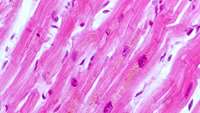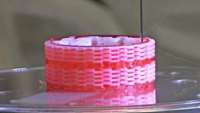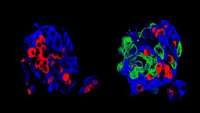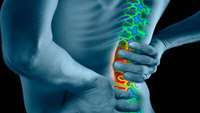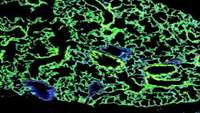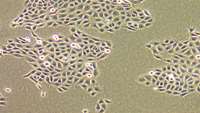Lab-Grown Heart Muscles Have Been Transplanted Into a Human For The First Time
On Monday, researchers from Japans Osaka University announced the successful completion of a first-of-its-kind heart transplant.
WFIRM scientists push bioprinting capability forward
Wake Forest Institute for Regenerative Medicine (WFIRM) scientists are the first to report using bioprinting to print a tracheal tissue construct comprised of multiple different functional materials.
Super-grafts that could treat diabetes
To save patients with a severe form of type 1 diabetes (characterized by the absence of functional insulin-producing cells), pancreatic cell transplantation is sometimes the last resort.
Regenerative medicine technology targets cause of low back pain
In addition to its effects on quality of life, chronic low back pain exerts a significant socioeconomic burden, primarily through lost work days and treatment costs. As many of its sufferers try to manage the pain with prescription drugs, it also has contributed to the growing opioid crisis, which is now a national research priority.
Can magnetic stem cells improve cartilage repair?
Cells equipped with superparamagnetic iron oxide nanoparticles (SPIOs) can be directed to a specific location by an external magnetic field, which is beneficial for tissue repair.
Stem cell transplants used to grow fully functional lungs in mice
Researchers at Columbia University were able to grow fully functional lungs in mouse embryos using transplanted stem cells. The findings suggest that it may be ultimately possible to use the technique to grow human lungs in animals for patients who need transplants and to study new lung treatments.
Skin graft: a new molecular target for activating stem cells
Human skin completely renews itself every month thanks to the presence of stem cells in the deepest layer, which generate all the upper layers of this tissue. The deciphering of genes that regulate stemness remains an enigma that is only partially resolved, in particular for human skin.
FMR1 Reactivating Treatments in Fragile X iPSC-Derived Neural Progenitors In Vitro and In Vivo.
Fragile X syndrome (FXS) is caused primarily by a CGG repeat expansion in the FMR1 gene that triggers its transcriptional silencing.
Studying the human brain in mice
The human brain is a tricky study subject. Brain scans are still limited in resolution and the knowledge they can provide, and in vitro approaches are not yet able to fully replicate the important micro-environment of brain cells.
Heart attack modeled with human stem cells
Researchers at Okayama University Graduate School of Medicine, Dentistry and Pharmaceutical Sciences developed a model of myocardial infarction using cardiomyocytes differentiated from human induced pluripotent stem cells.


